10 years later, remembering Butler's historic march through March
"Eight seconds left, Butler leads by nine … Clemente's three, no good to the right side. Howard tries to save the rebound, Pullen will shoot the two, it rolls in - Indianapolis, we're coming home! Butler is in the Final Four!" - Joe Gentry's radio call
When Joe Gentry attended Butler as a student in the 1980s, he could show up at Hinkle Fieldhouse 10 minutes before tipoff and find a seat in the third row. When the Bulldogs tasted success his junior year - 19 wins, including one over Notre Dame - he and a small group of Butler faithful chanted, "NIT! NIT!" before a game. Qualifying for the postseason, in any form, was an accomplishment for the small program from Indianapolis, which had made one NCAA Tournament in its first 100 years of existence.
"Butler won zero conference tournament games when I went to school here," said Gentry, who played on the tennis team and graduated in 1986.
Twenty-four years after graduation, on March 27, 2010, Gentry sat on press row at EnergySolutions Arena in Salt Lake City and tried to compose himself. In his fourth season as the radio voice of Butler basketball, Gentry had witnessed unprecedented success. A Sweet 16 in 2007. Two more tournament appearances in 2008 and 2009. Just two days earlier, he called the final moments as Butler advanced to its first Elite Eight.
This was bigger. Butler was one minute away from the Final Four. And Gentry had a 30-second timeout to shake out the nerves.
"I send it to break and I'm like, 'Oh my God, we're one minute away from being in the Final Four,'" he said. "Kind of had a chance to compose myself … but that's where you lean a little bit on your training. I was a radio and TV major and had great training at Butler and my job was to deliver the story. You don't know what's going to happen and I didn't script what I said when we were going to the Final Four because it's a live event that I'm describing, and I want it to be actual and honest and genuine."
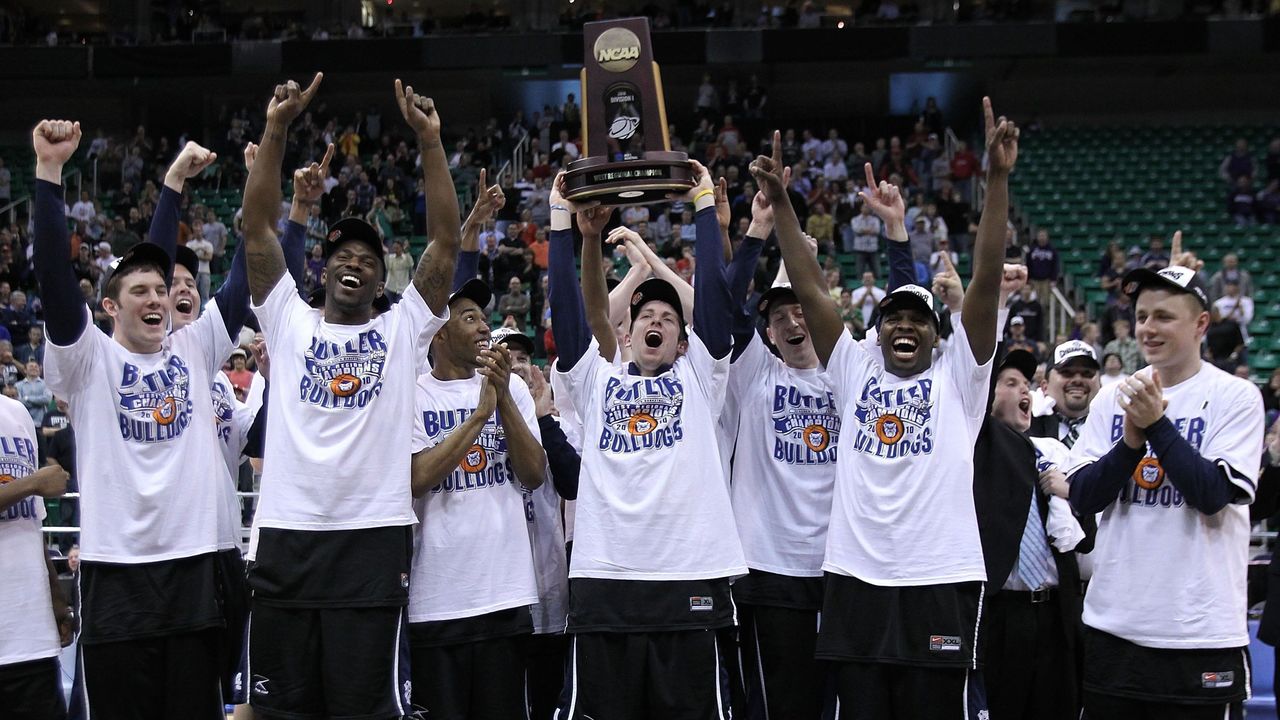
The Bulldogs prevailed 63-56 as Gentry coolly weaved play-by-play into a moment of jubilation - Butler's first appearance in the Final Four. It's the closest a mid-major team has come to winning a national championship in the 21st century. The 2009-10 Butler Bulldogs went more than three months between losses. Only 3 inches kept Butler from winning the national championship when Gordon Hayward's half-court heave rimmed out, leaving Duke to be crowned instead.
By 2010, Butler was by no means a no-name. But it was also by no means a juggernaut.
It was a team with a 33-year-old third-year head coach, the only player who would be a first-round NBA draft pick in school history, and a group of players who understood their roles. A decade later, more players are coaching than still playing. The memory of Butler's run is still vivid.
"Eight seconds left. Canaan pressured by Nored. Canaan double-teamed. … Four seconds left - knocked away by Hayward! Two seconds, one second … the Butler Bulldogs are going back to the Sweet 16!"
What does it take for a team out of the Horizon League to make a run to the Final Four?
Start with a clear understanding of roles and goals. Butler returned every player who saw meaningful minutes from the 2008-09 team that lost to LSU in the first round of the NCAA Tournament. A summer trip to Italy brought the team even closer.
Sophomores Hayward and Shelvin Mack were the scorers. Hayward, from Brownsburg, Indiana, averaged 13.1 points per game as a freshman and 15.5 as a sophomore. His teammates think Hayward didn't realize the extent of his potential until he made the NBA.
"The more confident that he became, obviously how good he was really started to shine," said former Butler assistant coach Matt Graves, who's now on staff at Xavier.
"We as coaches, and his teammates to a certain degree, all felt that he was a lot better than what he felt himself."
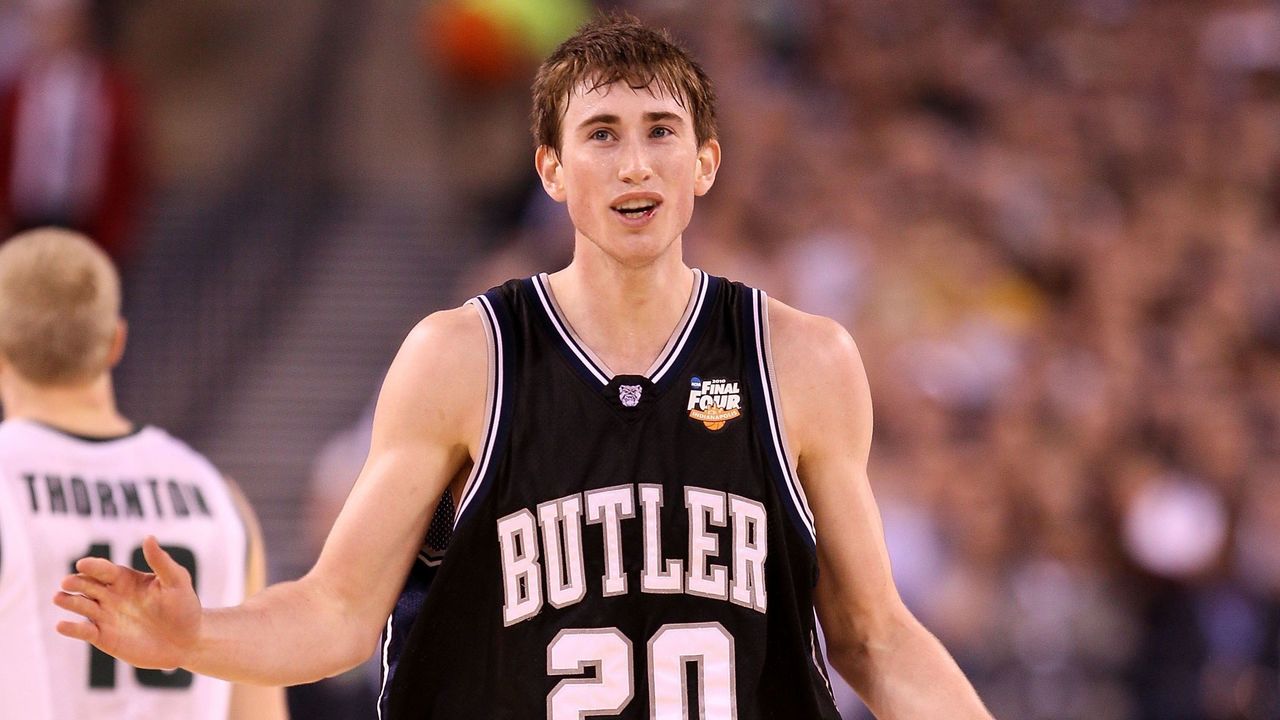
Mack, a shooting guard from Lexington, Kentucky, was arguably Butler's best shooter, making 39.1% of his 3-point attempts.
Matt Howard, a junior, was Butler's "presence," as point guard Ronald Nored put it. A former top-100 recruit and the Horizon League Player of the Year in 2009, Howard settled into a role as the Bulldogs' physical threat inside.
Nored and Willie Veasley, the other starters, defended the opponent's best players and did the little things necessary to win.
As point guard, Nored was also the natural, vocal leader Butler needed on the floor. He came to Butler from Birmingham, Alabama, with aspirations to become President of the United States. He even successfully ran for freshman class president in his first year on campus. (Nored's now an assistant coach with the Charlotte Hornets.)
"He just knew he was going to be in a position of leadership," said Grant Leiendecker, a senior on the 2009-10 team who's now associate athletic director at Marquette. "That's just how he's wired."
At the top was Brad Stevens, the wunderkind coach who led Butler to a 56-10 record in his first two seasons. There was an intense level of trust between Stevens, his staff, and the players. The combination of experience and potential pro talent led to a No. 11 ranking in the AP preseason poll - the first time the Bulldogs were ranked to begin a season.
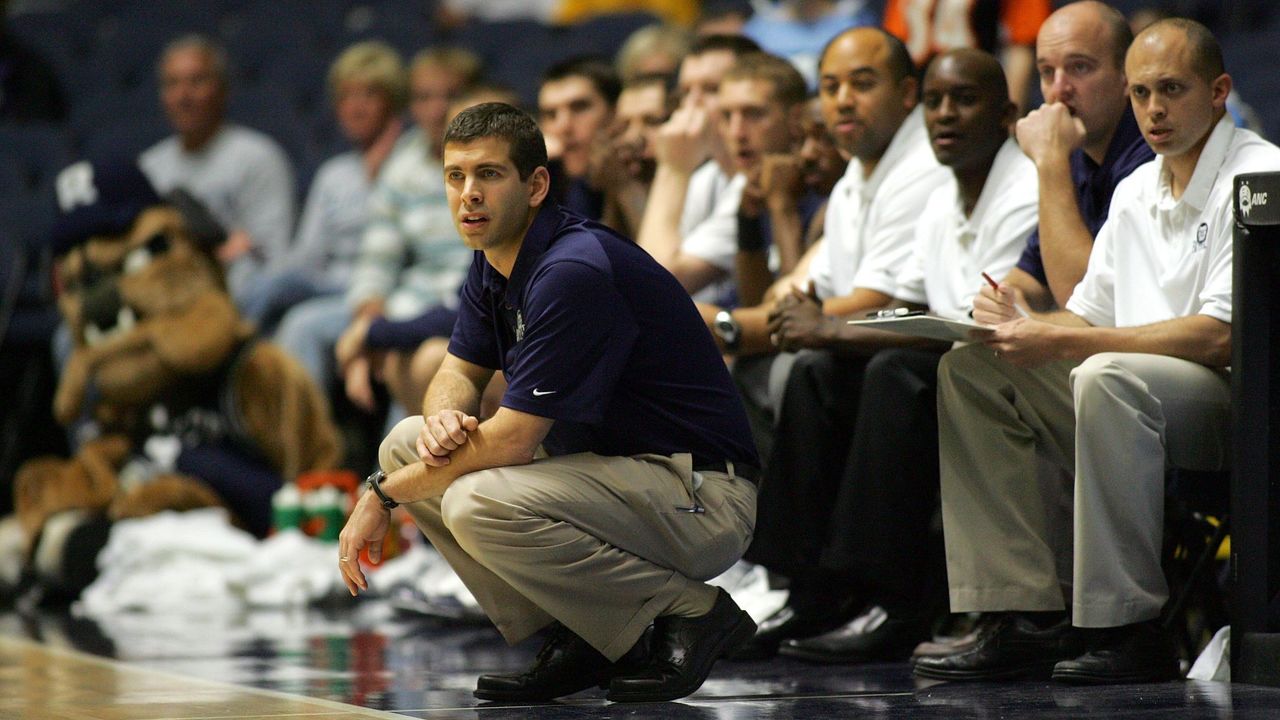
But it wasn't perfect. With expectations came trials. Butler started the season 8-4. After an ugly 67-57 loss at UAB in the final game before Christmas break, the Bulldogs fell out of the Top 25. When the players returned to practice after their brief time off, the staff had taken everything off the locker-room walls. It was an inflection point, a chance for Butler to decide what kind of team it would be the rest of the season.
"Credit to the staff. They had us locked in coming back to practice," Nored said. "I think we had some of the hardest practices we had had up to that point."
The team responded with fire. Butler didn't lose another game in the regular season.
"We forgot what it felt like to lose," Nored said.
"Veasley's second free throw bounces, no good. Rebound Jackson. Eight seconds left, Butler by four. Jardine - knocked away by Nored, taken by Hayward! Hayward with two, one - and for the first time ever, Butler is going to the Elite Eight!"
When a team forgets how to lose, it finds ways to win - no matter the score.
During Butler's march to the national championship game, it trailed in the second half of every NCAA Tournament game. Butler, a No. 5 seed, trailed 12th-seeded UTEP by six at halftime in the first round. The Bulldogs' offense woke up, their defense clamped down, and they pulled away to win 77-59.
The second round, against No. 13 Murray State, was all about defense. It was also a rare moment in which Butler's well-defined roles were reversed. Nored, the defensive stopper, led the team with 15 points. Hayward, the star, stole the ball from Isaiah Canaan in the final seconds to preserve a 54-52 win.
Still, it may have taken a Sweet 16 win over top-seeded Syracuse for a wider audience to recognize the Bulldogs' championship potential.
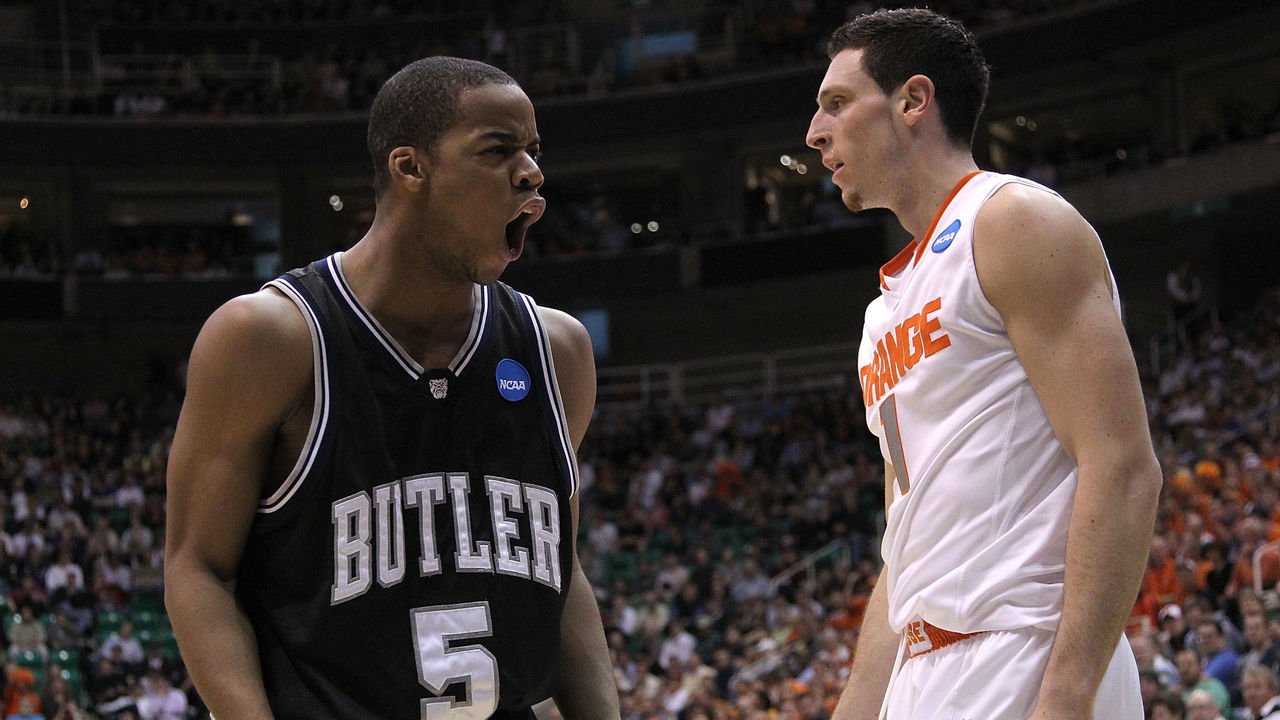
Facing a Syracuse team that won the Big East, Butler led by 10 at halftime because of its defense. (The Bulldogs didn't allow a team to score 60 in the NCAA Tournament until Duke scored 61 in the championship game.) The Bulldogs frustrated the Orange into 18 turnovers.
"We just took away other team's strengths," Leiendecker said. "In the college game, even if you're dealing with a really good team like that Syracuse team, most really good players in the college game, they have their go-to move. A really good player would have a counter move. But outside of that, this isn't the NBA. If you can really be smart about taking away a player's go-to move, their No. 1 strength, you really can minimize a team's ability to get it going. We were really good at that."
The Bulldogs did it in the Elite Eight, too, forcing Kansas State star Jacob Pullen into as many turnovers (four) as made field goals.
When they completed the 63-56 win over K-State, they became only the second team to reach the Final Four when it's hosted in its home city.
"Garrett Butcher and I went to a concert - a Kenny Chesney and Tim McGraw concert in September of that season," Nored said. "Obviously we all knew the Final Four was in Indy. It was at Lucas Oil Stadium, this concert was.
"We were like, 'Man, this would be really cool if we got to play here.'"
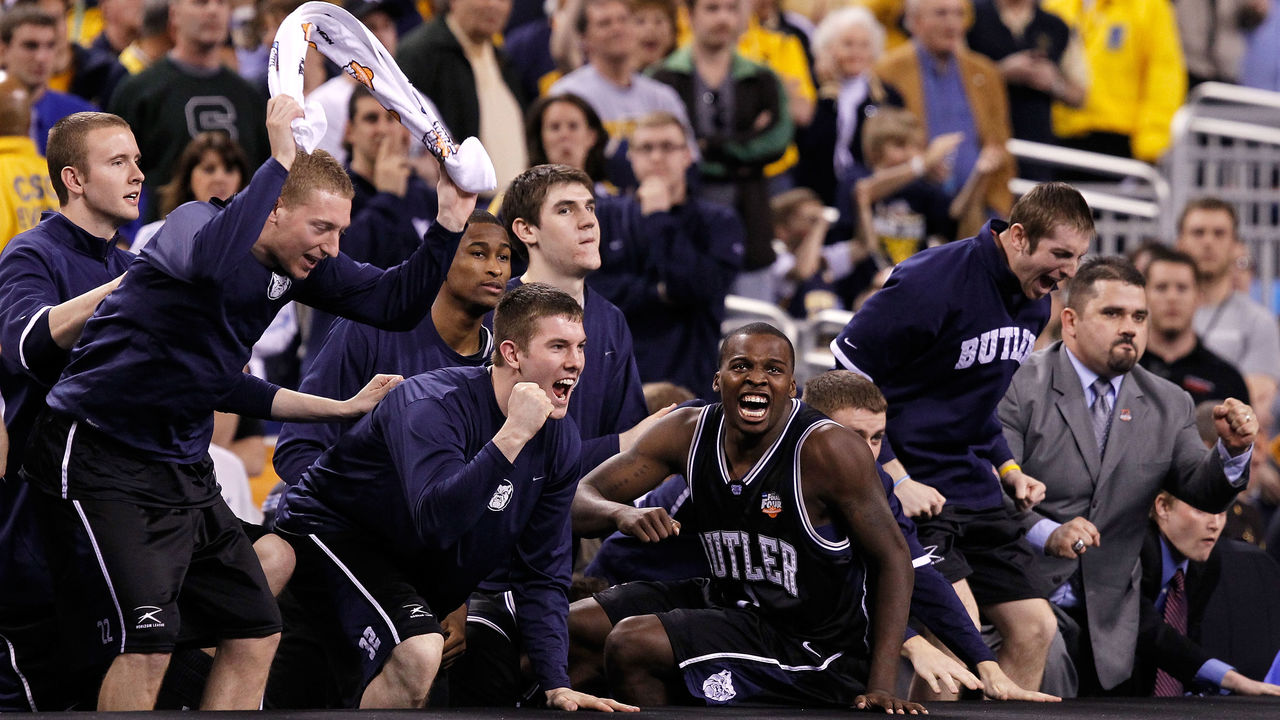
"Rebound Hayward inside! And that's it! Believe it! The Butler Bulldogs have won 25 straight and they will play for the national championship!"
In order to shield the players from potential distractions - and keep them on a schedule - Butler stayed in a hotel in its home city in the week leading up to its first Final Four.
But the players did go to class - even on the Monday of the championship game. In Leiendecker's organizational management class, his professor put his photo at the end of her PowerPoint presentation and the class cheered.
Still, it made for a long day. The title game tipped at 9 p.m.
"I was not happy," Nored said.
Before advancing to play Duke, though, Butler had to play a Michigan State team that featured Draymond Green.
On the Friday before the semifinal, the Bulldogs held an open practice at Lucas Oil Stadium in front of 30,000 people.
That's when the significance of the moment hit for many.
"It's amazing how focused you get once you get in the tournament and get going but that moment right there … this is going to be something that you'll never forget," Graves said.
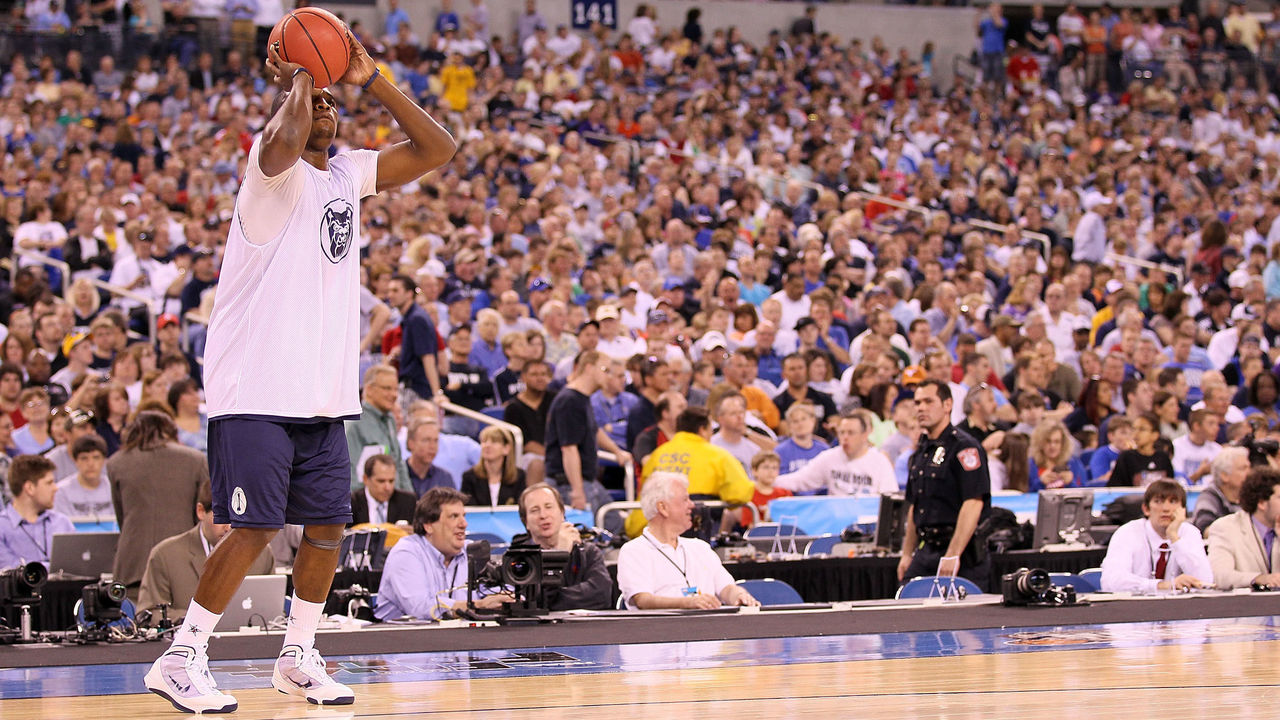
The national semifinal was a slugfest. The Bulldogs had nothing going offensively but created 12 steals. Nored and Veasley, understanding their roles, combined for 11 rebounds and seven steals. Hayward battled with Green down low. Howard, Butler's enforcer, suffered a concussion. But the Bulldogs survived 52-50.
"The reality was, we didn't look like we were like the most tough, physical, defensive guys ever, but that was why we were good," Nored said. "We had a defensive brand, we had a defensive identity. Our coaches did such a great job game-planning. We were a team that followed the game plan and we were as connected as a team that I've ever been a part of, coaching or playing."
At that point, after 25 consecutive wins, Butler figured it couldn't lose. The program had gone 103 days without a loss when it stepped onto the court against Duke. There was no mystique, no intimidation.
It looked like David vs. Goliath on the outside. Not to Butler.
"It didn't matter what the score was," Nored said. "It didn't matter that we were down to Duke, and it was an impossible shot. We still felt like we haven't lost, we found a way to win every game we've been in in 2010, this won't change."
Neither team led by more than six points at any point in the championship game. Duke led by one at the half, but Butler held a lead on three separate occasions in the final 20 minutes.
With 13.6 seconds left, Butler trailed 60-59. The ball was inbounded to Hayward. He started left; Kyle Singler stopped him. He dribbled behind his back and drove to the right baseline. He fired a shot, fading away.
"I can't rewatch that game because I still think that shot's going to go in," Leiendecker said. "I remember that vividly. I thought it was a bucket. When that came out I was like, 'Ugh, that's a heartbreaker.' Yeah, that one was the shot that most people don't remember that I thought was going to drop."
The Hayward shot people remember happened seconds later, after Duke's Brian Zoubek missed the second of two free throws.
Gentry's final call:
Two-point Duke lead. Second free throw misses, rebound taken by Hayward, three seconds left, Hayward dribbles right side off the Howard screen, half-court shot is … no good! It banked off the glass and just missed. Two shots from Gordon Hayward both just missed, and Duke wins the national championship 61 … to 59.
"I never thought there was a chance we were going to lose," Nored said. "Even in that moment I'm like, 'This ball is going in.' And unfortunately, it didn't. We were shocked. We were shocked after the game. We hadn't lost in three or four months, whatever it was. So that feeling was just shock. After the ball hits off the rim, obviously the confetti comes down, Duke's celebrating, it was just shock."
"As soon as he shoots it, you don't really, just percentages, right? You don't feel like it's going in," Leiendecker said. "There's no gut feeling like, 'Oh, he's going to make this.' You're hoping, you're praying, you're on the edge of your seat like, please-please-please. But once it got probably three-quarters of the way there I'm like, 'Oh my God.' It's almost like time just stops and slows down. You're playing out the rest of your life in your head as this thing goes in the air.
"But at that point I'm like, this has a chance to go in. If this goes in this is the greatest shot in the history of college basketball. Hits the backboard, bounces - literally I think I held my breath for probably three seconds and experienced probably the greatest heartbreak of my entire life when it bounces out. But just an amazing finish to a great game, to a great run."
Hayward entered the NBA draft after the season, becoming the first Butler player to be selected in the first round. Now, of course, he's reunited with Stevens on the Boston Celtics.
Most of Butler's core returned, however. And a year later, the Bulldogs made an even more surprising run to a second consecutive title game as a No. 8 seed. They fell short to Kemba Walker and UConn 53-41.
Ten years later, only Hayward and Mack - who plays professionally in Israel - are active players. Nored's an assistant coach with the Hornets. Veasley's an assistant at North Dakota State. Emerson Kampen, a sophomore on the 2009-10 team, is an assistant at his alma mater. Zach Hahn and Shawn Vanzant, two of Butler's key bench players, coach at the high-school level. Leiendecker is an administrator at Marquette.
"Obviously we all want to still be involved in the game in some way," Nored said. "We happened to be involved at a high level in college and I think a lot of guys wanted to continue that, so coaching is kind of the way to do that after you play."
Sometimes, members of the team will run into each other - Leiendecker, Kampen, and Graves all work for Big East schools that play each other twice a year in men's basketball. Graves said it doesn't feel like it's possible that a full decade has passed since their historic run.
"It was a really surreal, once-in-a-lifetime experience," Leindecker said.
He quickly corrected himself: "Well, I guess we made it twice in a lifetime."
Mark Cooper is theScore's NCAA writer.